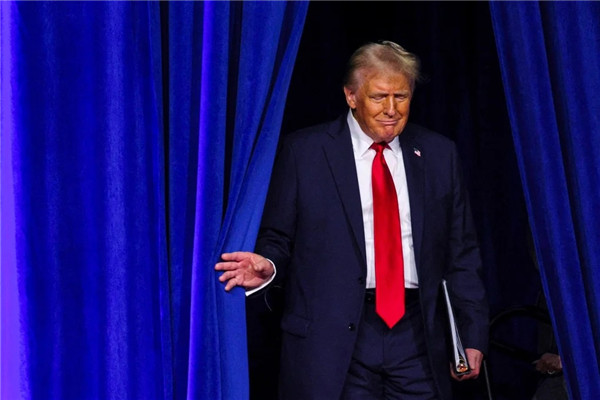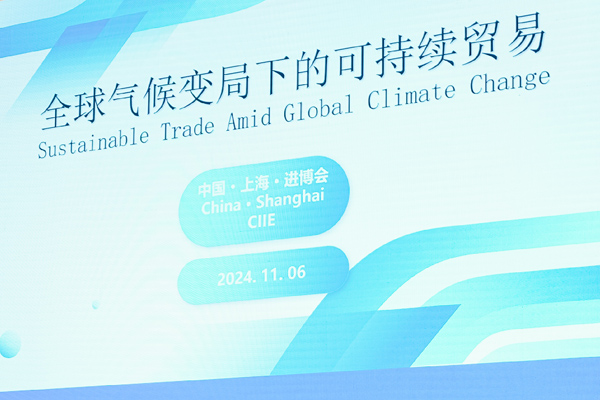Promoting dialogue to deal with the complex world situation DOC Chairman Vladimir Yakunin speaks at CCG

On 31 October 2019, Vladimir Yakunin, chairman of the Supervisory Board of the Dialogue of Civilizations Research Institute (DOC) delivered a speech at the Center for China and Globalization (CCG) headquarters in Beijing, sharing his insights on the international situation. CCG President Wang Huiyao chaired the seminar.
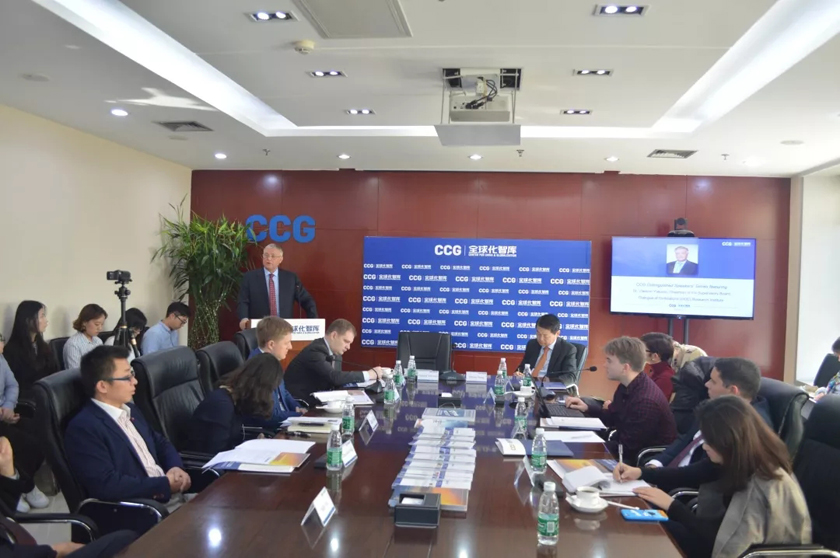
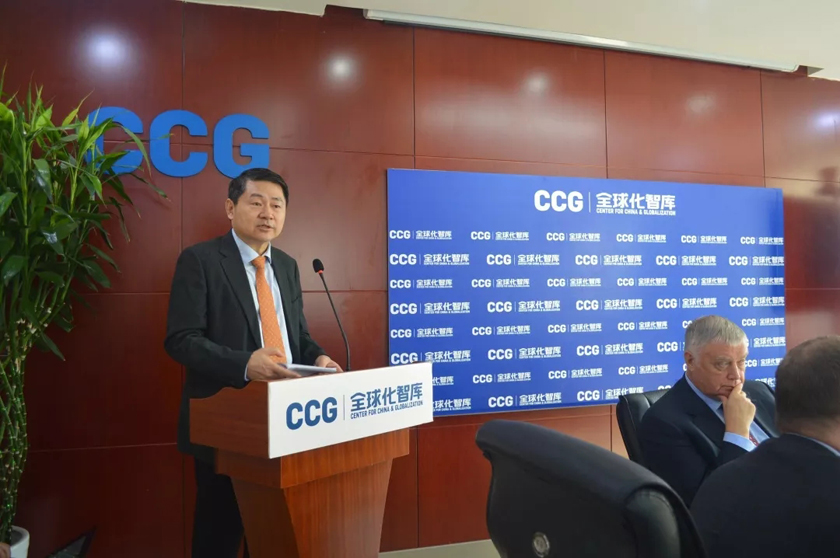
Wang highlighted the important contributions of the DOC in promoting understanding of the world’s diverse civilizations. He said the discussion would deepen our understanding of different civilizations and the international situation.
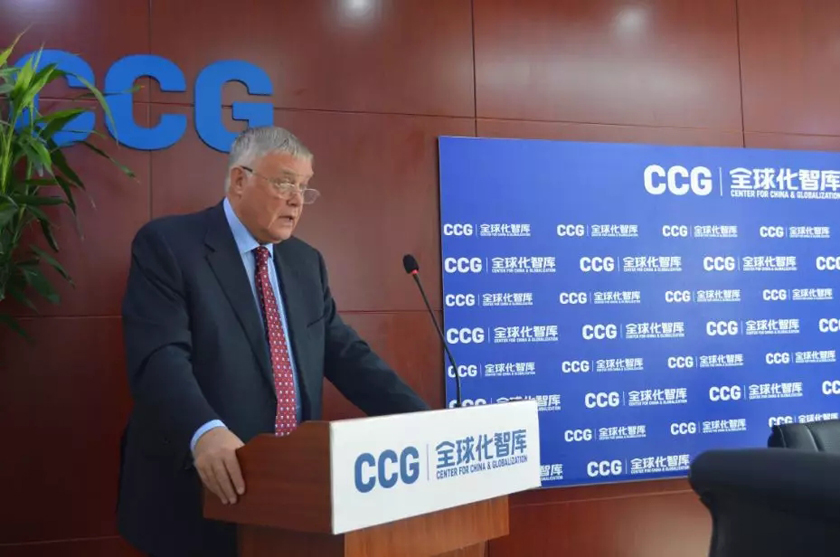
Vladimir Yakunin emphasized that “human society is one whole” is the cornerstone of promoting dialogues between civilizations. DOC research is not limited to geopolitics, the European economy, or the progress of a certain aspect of society, but treats society as a whole, and considers the world as an integrated union.
“Dialogue among civilizations” is an effective way to solve problems
Yakunin said that “Dialogue among Civilizations” is an effective way to solve present pressing problems. However, in Russia and other countries, many scholars question the idea, believing that it is “global civilization” that should be discussed, instead of the diversity of civilizations.
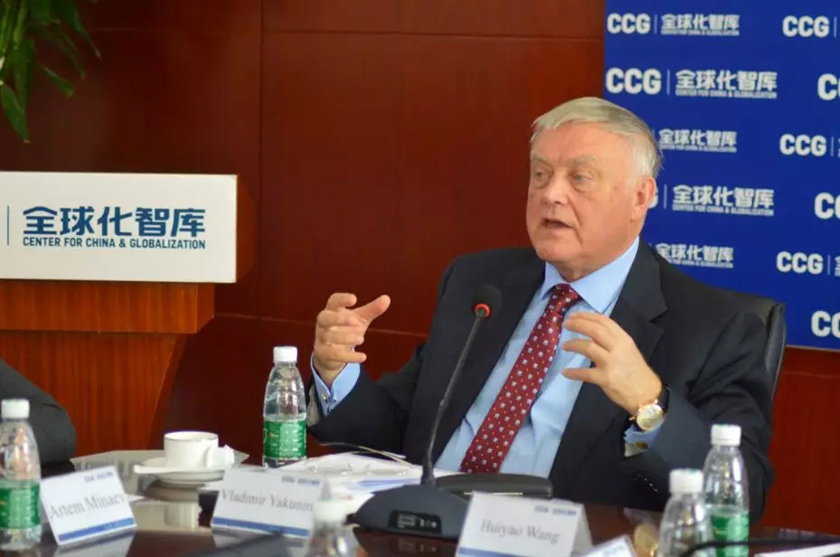
Yakunin said that the world has been in flux, with nations and regions rising and falling after World War II. The “fall” is represented by the disintegration of the Soviet Union, while the “rise” is reflected in the economic development of the European Union and Asia. He said the world is now moving from a unipolar world to a multipolar one, as embodied by the shift of influence from the Western world to the Asia-Pacific region.
Yakunin said that, only by eliminating misunderstandings between civilizations can we create more possibilities for cooperation.
China-Russia relations are highly complementary
Yakunin believed that China and Russia are highly complementary and that the two countries have many common interests. He said that China-Russia cooperation will also become an important driving force for the development of Asia and Europe.
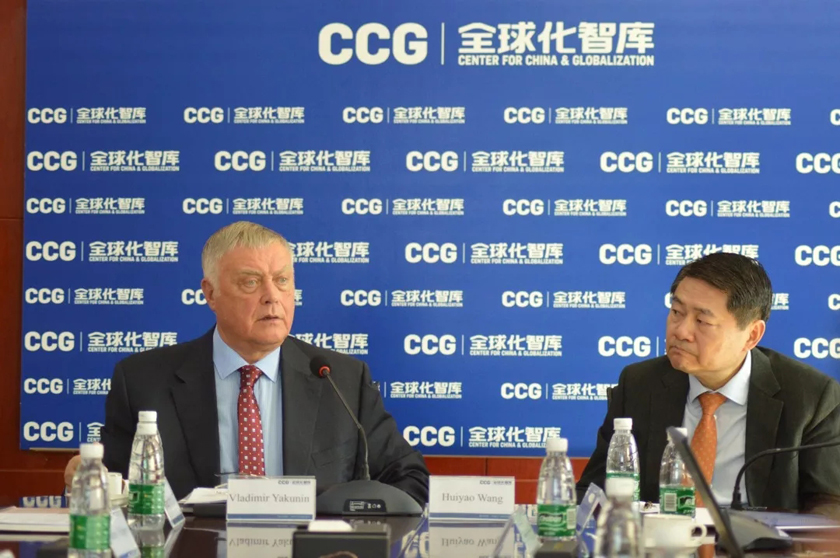
During the Q&A session, Yakunin spoke with participants on topics such as how to promote dialogue among civilizations, Sino-Russian relations, the BRI, global governance, Sino-US relations, and other topics.
Yakunin said that in the current international environment, the are some challenges facing dialogue between countries, but it is important to maintain dialogue and promote cultural exchange, including stud abroad. He said that think tanks and civil society can play a more important role in this process and in advising the policy-makers.
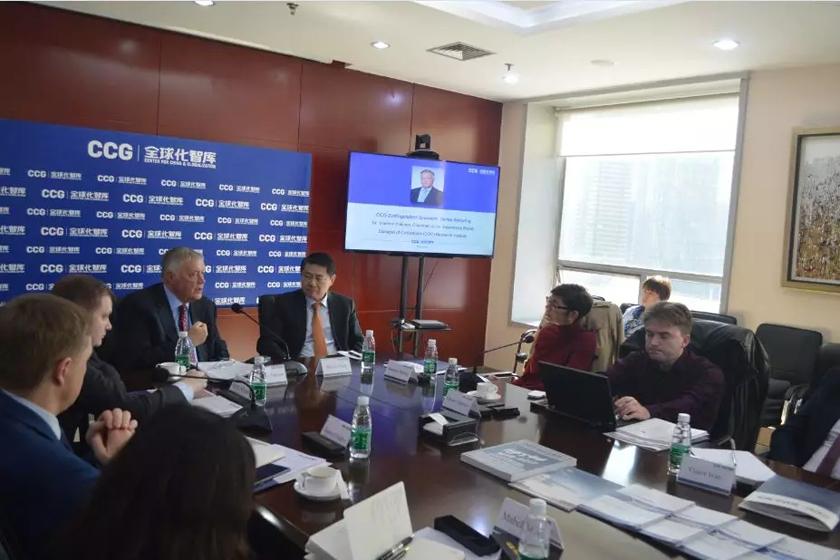
Speaking of global governance, Yakunin expressed concerns about the current global governance system. He said that international organizations such as the World Bank and the International Monetary Fund (IMF) are increasingly inclined to global financial governance. Moreover, politics and many different factors such as the internet and fake news are profoundly affecting the global governance system.
Regarding the Sino-US trade war, Yakunin pointed out that the United States is trying to withdraw from the WTO to disrupt the global trading system. He said that China and Russia have close economic and trade relations, and that with the development of 5G technology, there will be a large market for China and Russia to cooperate in this area. Russia does not benefit from the Sino-US trade war and does not want the situation to worsen.
Speaker’s bio :
Dr. Vladimir Yakunin is a Russian business leader and philanthropist. He was former president of Russian Railways (2005-2015), head of the Department of State Governance of the Faculty of Political Science of the Lomonosov Moscow State University; visiting professor at the Stockholm School of Economics; visiting professor at Peking University; honorary doctor of the Diplomatic Academy of the Russian Foreign Ministry; and member of the Russian Academy of Social Sciences. Vladimir Yakunin graduated from the Leningrad Institute of Mechanics as a Mechanical Engineer in 1972.
LocationBeijing

